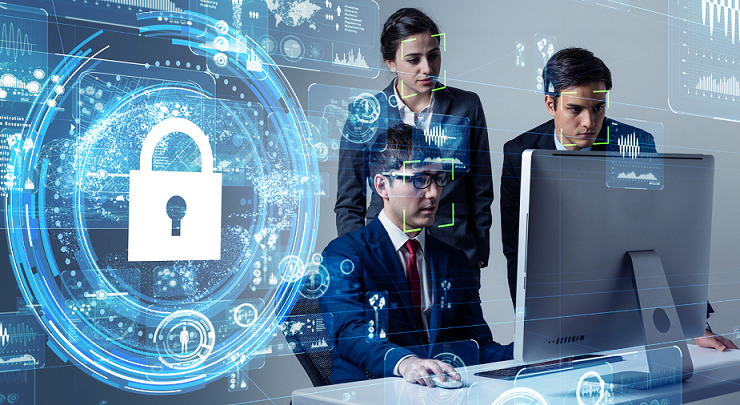Cyber Security Tips for Investors

Cyber security is an ever-evolving and growing area of concern for investors. As more of our financial data is stored online, and with the increasing number of cyberattacks, it is essential for investors to take proactive steps to protect their assets and investments.
In this article, we will discuss some of the most important cybersecurity tips for investors to keep in mind when managing their investments. We will also look at some of the common risks associated with investing online and how to mitigate them.
Watch Out for Spam
If you have social media, browse the internet, or have an email account, you have more than likely come across a suspicious message or post. This could include a message asking for your phone number or email from someone you know (who already has it) or someone you don’t know. It could be someone commenting on a post you made or sending you a direct message asking you to click a link or give them your banking information because you “won five million dollars”. Whatever the case may be, do not click anything suspicious or give out any personal information, unless you know it is safe to do so. It is best practice to ignore and delete the message and block the sender.
Have Strong Passwords
While it is important to have strong passwords for any account you have, it is extremely important for accounts that hold important information or valuable items. Below is a list of Do’s and Don’ts for password protection.

Protect Your Devices
There are many ways you can keep your devices protected from viruses, being hacked, and other cyber-attacks. You should keep all of your devices, browsers, and apps updated to ensure you have the most recent security software, activate the firewall on your computer, and install and run an anti-virus program on all of your devices. Downloading apps or clicking on links solely from reputable sources can also help protect your devices.
Enable Multi-Factor Authentication
In addition to having a strong password, you should also secure your accounts, if available, with multi-factor authentication (MFA). Securing your account with MFA will require you to provide two or more verification factors to gain access to your account when you attempt to log in. An MFA can include security questions, one-time passcodes sent to your phone number or email, or a form of biometric scanning. Utilizing MFA adds an extra layer of security to your accounts, making them much harder to hack.
Stay Away from Public Networks and Public Devices
Many public Wi-Fi networks, such as those in airports, hotels, or restaurants, lower their security settings to make it easier for users to gain access to the network. However, this puts you at risk for your information being taken through an interception in the network, or from hackers creating their own public networks with familiar sounding names. It is recommended to avoid accessing any personal information when on a public network. Such information should only be accessed when on a trusted, encrypted network.
Furthermore, you should only access important or personal information or accounts from devices owned by you and with access restricted to you alone—stay away from public, shared devices. Public devices may contain software that is able to capture passwords and PINs, which others can then use to gain access to your accounts.
This content is provided for general informational purposes only and does not constitute financial, investment, tax, legal or accounting advice nor does it constitute an offer or solicitation to buy or sell any securities referred to. Individual circumstances and current events are critical to sound investment planning; anyone wishing to act on this content should consult with his or her financial partner or advisor.